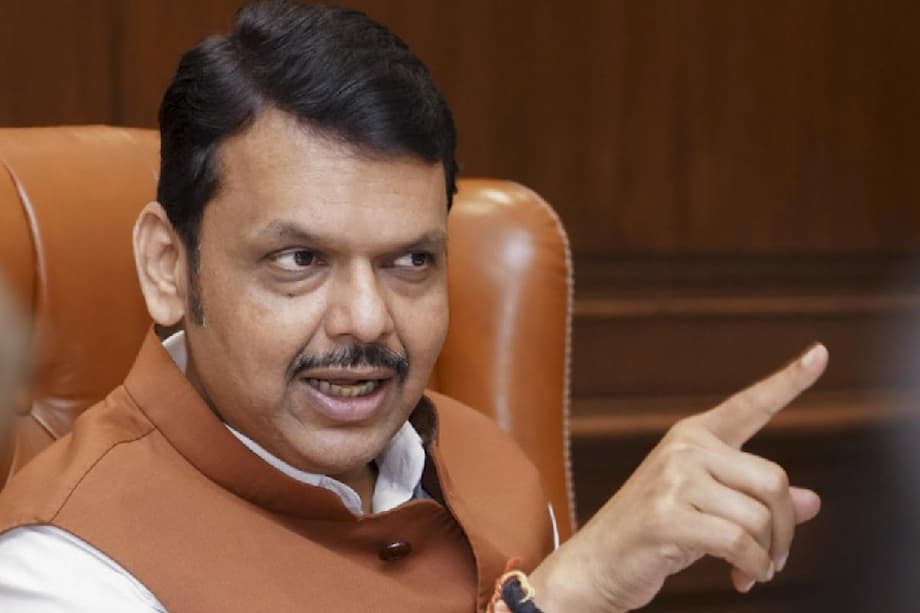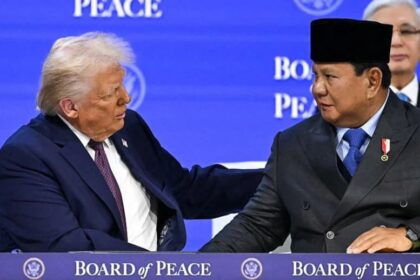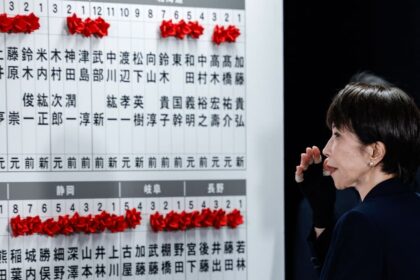Maharashtra’s New Anti-Conversion Push: What’s Behind the Crackdown on ‘Crypto-Christians’?
In July 2025, the Indian state of Maharashtra ignited a national debate by announcing plans to revoke Scheduled Caste (SC) certificates and reservation benefits from individuals accused of being ‘crypto-Christians’—a term used by Hindu nationalist leaders to describe people who allegedly convert to Christianity but conceal their new faith to retain government benefits reserved for historically marginalized groups. The move, spearheaded by Chief Minister Devendra Fadnavis and the ruling Bharatiya Janata Party (BJP), comes alongside plans for a stringent anti-conversion law targeting religious conversions deemed coercive or deceptive.
- Maharashtra’s New Anti-Conversion Push: What’s Behind the Crackdown on ‘Crypto-Christians’?
- What Are ‘Crypto-Christians’ and Why Are They Targeted?
- The Legal Foundation: Supreme Court Ruling and Reservation Policy
- What Does the Proposed Anti-Conversion Law Entail?
- Religious and Social Backlash: The Church and Dalit Christian Voices
- Political Motivations and Broader Implications
- How Will the Law Be Enforced?
- Critics’ Concerns: Discrimination, Social Chaos, and Legal Ambiguity
- National Context: Anti-Conversion Laws Across India
- What’s Next for Maharashtra?
- In Summary
This development has sparked controversy across India’s political and religious spectrum, raising questions about the intersection of religious freedom, social justice, and the rights of Dalits (formerly known as “untouchables”) and other marginalized communities. To understand the significance and implications of Maharashtra’s actions, it’s essential to examine the legal, social, and political context driving this crackdown.
What Are ‘Crypto-Christians’ and Why Are They Targeted?
The term ‘crypto-Christian’ is not an official legal category but a political label. Hindu nationalist leaders use it to describe individuals—primarily from Scheduled Castes, Scheduled Tribes, and other marginalized groups—who are alleged to have converted to Christianity in practice while maintaining their official status as Hindus, Buddhists, or Sikhs on government records. This, they argue, allows these individuals to continue accessing reservation benefits in education, employment, and politics, which are constitutionally reserved for certain disadvantaged groups.
According to BJP leaders, such practices are prevalent in districts like Nandurbar, Sangli, and Ahmednagar. They claim that this alleged concealment deprives genuinely marginalized groups of their rightful share of government benefits. MLC Amit Gorkhe and BJP MLA Chitra Wagh have cited cases where women were deceived into marriage by men hiding their religious identity, with one tragic case in Sangli involving alleged forced conversion and the death of a woman during pregnancy.
Chief Minister Fadnavis, echoing these concerns, stated in the legislative council that strict legal action would be taken against those found to have fraudulently obtained SC certificates and reservation benefits by misrepresenting their religion. He emphasized that the government’s actions are guided by a recent Supreme Court ruling and are aimed at upholding the integrity of the reservation system.
The Legal Foundation: Supreme Court Ruling and Reservation Policy
At the heart of Maharashtra’s move is a Supreme Court verdict delivered on November 26, 2024. The ruling reaffirmed that Scheduled Caste reservations—affirmative action policies designed to uplift historically oppressed communities—are constitutionally available only to Hindus, Buddhists, and Sikhs. The rationale is rooted in the historical context of caste-based discrimination, which is seen as a feature of the Hindu social order and, by extension, its closely related faiths.
As a result, individuals who convert to religions outside this framework, such as Christianity or Islam, are legally excluded from SC reservation benefits. The court’s decision has been cited by the Maharashtra government as the legal basis for revoking SC certificates and reservation benefits from those who have converted to other religions but failed to update their official records.
Chief Minister Fadnavis has made it clear that any SC or reservation certificates obtained by people from religions other than Hinduism, Buddhism, or Sikhism will be cancelled following due procedure. Those who have benefited from such certificates—by securing government jobs, contesting elections, or receiving educational quotas—will face disqualification, annulment of election victories, and even recovery of monetary benefits gained through fraudulent means.
What Does the Proposed Anti-Conversion Law Entail?
Alongside the crackdown on fraudulent caste certificates, Maharashtra is preparing to introduce a new anti-conversion law during the upcoming winter session of the state legislature. The proposed law aims to address cases of religious conversion that occur through coercion, deception, or inducement. According to government statements, the law will be stricter than similar legislation in other Indian states.
The government has formed a high-level committee, led by the Director General of Police, to recommend measures for preventing forced or deceitful conversions. The panel’s report has been submitted, and the government is reviewing its recommendations. The new legal provisions are expected to supplement existing laws, such as the Bharatiya Nyaya Sanhita (BNS), by specifically targeting identity fraud for reservation benefits and coercive religious conversions.
Minister of State for Home, Pankaj Bhoyar, has stated that the anti-conversion bill will not ban voluntary religious conversions. Instead, it will focus on investigating and prosecuting cases where conversion is alleged to have occurred through force, cheating, or enticement. Complaints of such acts will trigger official investigations and possible action against individuals or organizations involved.
Religious and Social Backlash: The Church and Dalit Christian Voices
The Maharashtra government’s actions have drawn strong criticism from Christian leaders and advocates for Dalit rights. Cardinal Oswald Gracias, Archbishop Emeritus of Mumbai, has reiterated the Catholic Church’s opposition to forced conversions, emphasizing that genuine conversions involve a structured and lengthy process. He stated:
The Church is against forced conversions. Genuine conversions are a matter of personal conviction and take time, involving a structured process.
Fr Z. Devasagaya Raj, former secretary of the Office for Scheduled Castes/Backward Classes of the Catholic Bishops’ Conference of India, has condemned the use of the term ‘crypto-Christian,’ calling it meaningless and discriminatory. He argues that the real issue is the exclusion of Dalit Christians from reservation benefits, which he sees as a violation of social justice and equality:
The real issue is discriminatory laws that deny reservation status to Dalit Christians. Introducing such laws in Maharashtra would create chaos and harm interreligious relationships in this multicultural state.
Dalit Christian activists have long campaigned for the extension of SC reservation benefits to Dalits who convert to Christianity or Islam, arguing that caste-based discrimination persists regardless of religious affiliation. They contend that the current policy forces Dalits to conceal their faith or face the loss of crucial social and economic support.
Political Motivations and Broader Implications
The timing and tone of Maharashtra’s crackdown have led many observers to question the political motivations behind the move. The BJP, which leads the state government, has consistently advocated for stricter anti-conversion laws and has positioned itself as a defender of Hindu interests. Critics argue that the focus on ‘crypto-Christians’ serves to stoke religious tensions and consolidate political support among Hindu voters, especially in the run-up to elections.
At the same time, the government’s emphasis on upholding the Supreme Court’s ruling and protecting the integrity of the reservation system resonates with many who believe that affirmative action policies should not be exploited through identity fraud. The debate thus reflects deeper tensions in Indian society over the meaning of secularism, religious freedom, and the state’s role in regulating both.
There are also concerns about the potential impact on interreligious harmony in Maharashtra, one of India’s most diverse and multicultural states. Religious minorities, particularly Christians and Muslims, fear increased surveillance, legal harassment, and social ostracism as a result of the new policies. Human rights organizations warn that the anti-conversion law, if not carefully crafted and implemented, could be misused to target minority communities and suppress legitimate expressions of faith.
How Will the Law Be Enforced?
According to official statements, enforcement will involve a multi-step process:
- Identification of individuals suspected of concealing their religious conversion while retaining SC certificates.
- Verification of religious status and investigation into allegations of fraudulent benefit claims.
- Cancellation of SC certificates and reservation benefits for those found in violation, including disqualification from government jobs or elected positions.
- Recovery of monetary benefits obtained through fraudulent means.
- Investigation and prosecution of cases of alleged forced or deceitful conversions under the new anti-conversion law and existing legal provisions.
The government has indicated that it will not interfere with consensual religious conversions, but complaints of coercion, deception, or inducement will be thoroughly investigated. The panel led by the Director General of Police will play a key role in shaping enforcement mechanisms and ensuring due process.
Critics’ Concerns: Discrimination, Social Chaos, and Legal Ambiguity
Opponents of the government’s actions raise several concerns:
- Discrimination Against Dalit Christians: By excluding Dalit Christians from SC reservations, the policy perpetuates caste-based discrimination and denies social justice to a vulnerable group.
- Potential for Social Chaos: Critics warn that the crackdown could create confusion and resentment among marginalized communities, leading to social unrest and damaged interreligious relationships.
- Legal Ambiguity: The process of determining an individual’s true religious identity is fraught with challenges, especially in cases where conversion is a matter of personal belief rather than public declaration.
- Risk of Misuse: Human rights groups caution that the anti-conversion law could be weaponized against religious minorities, stifling legitimate expressions of faith and targeting social work by Christian organizations.
Despite these concerns, the Maharashtra government maintains that its actions are necessary to protect the rights of genuine beneficiaries and uphold the rule of law.
National Context: Anti-Conversion Laws Across India
Maharashtra is not the first Indian state to consider or implement anti-conversion legislation. Several states, including Uttar Pradesh, Madhya Pradesh, and Gujarat, have enacted laws aimed at preventing conversions through force, fraud, or inducement. These laws typically require individuals seeking to convert to another religion to notify authorities and face penalties for violations.
Supporters argue that such laws are needed to prevent exploitation of vulnerable populations and preserve social order. Critics, however, contend that they infringe on religious freedom, are selectively enforced, and disproportionately target minority communities. The debate over anti-conversion laws reflects broader anxieties about religious identity, demographic change, and the future of secularism in India.
What’s Next for Maharashtra?
The Maharashtra government has signaled its intent to move quickly. The anti-conversion bill is expected to be tabled in the winter session of the state legislature, and administrative action against those accused of misusing SC certificates is already underway. The outcome will depend on the specifics of the legislation, the rigor of enforcement, and the response from civil society, religious groups, and the judiciary.
As the state navigates these contentious issues, the eyes of the nation—and the world—will be watching. The balance between protecting vulnerable groups, upholding constitutional rights, and maintaining social harmony is delicate. How Maharashtra manages this challenge could set a precedent for other states grappling with similar questions at the intersection of faith, identity, and justice.
In Summary
- Maharashtra plans to revoke SC certificates and reservation benefits from individuals accused of being ‘crypto-Christians’—those who allegedly conceal their conversion to Christianity to retain government benefits.
- The move is based on a Supreme Court ruling that limits SC reservations to Hindus, Buddhists, and Sikhs.
- A new anti-conversion law is being prepared to address conversions deemed coercive or deceptive, but voluntary conversions will not be banned.
- Christian leaders and Dalit activists have criticized the policy as discriminatory and harmful to interreligious harmony.
- The government insists the measures are necessary to protect genuine beneficiaries and uphold the law, but critics warn of potential misuse and social unrest.
- The outcome in Maharashtra could influence similar debates and policies across India.












